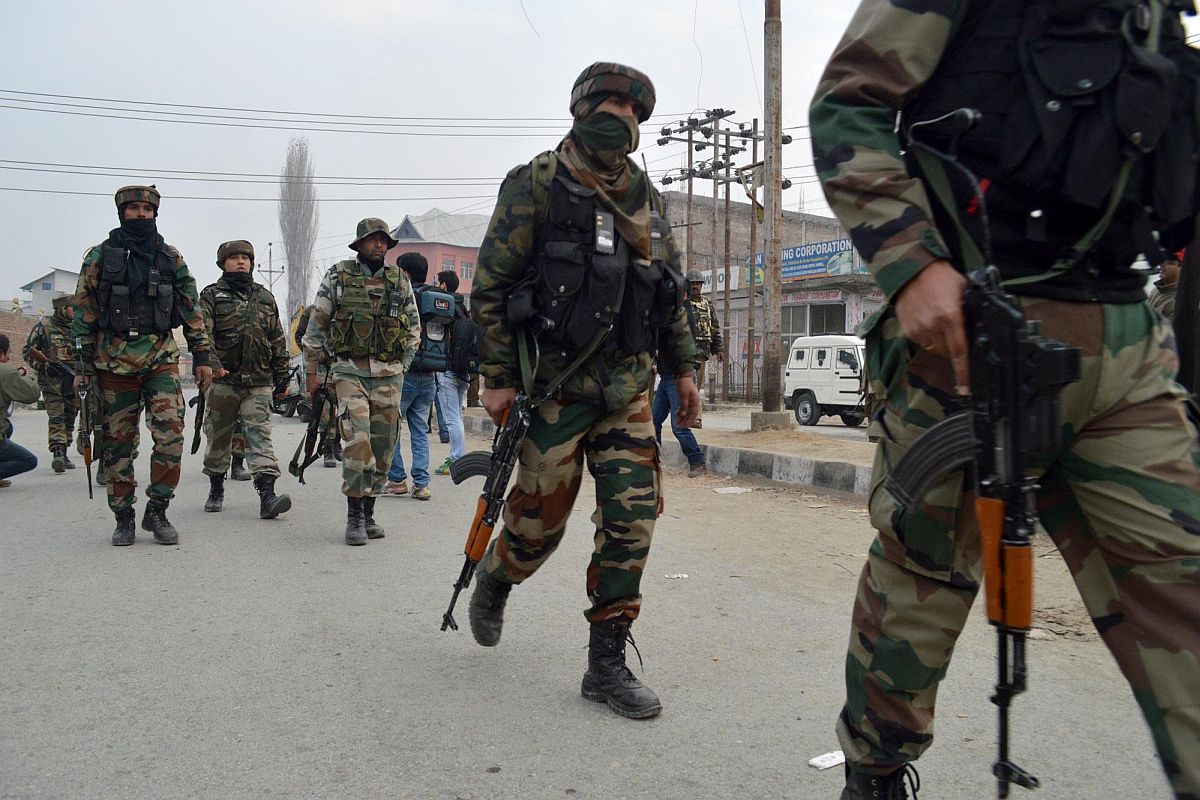Congress, allies sabotaged Jammu’s national projects: Dr Jitendra Singh
The minister further alleged that the Congress also denied 4% reservation to the people living along the International Border in this region.
The Press Council of India’s move to intervene in the case in Supreme Court over restrictions on communication placed in Jammu and Kashmir has prompted strong objections from members of various media watchdog organisations

Security personnel deployed in Srinagar. (File Photo: IANS)
After IWPC the Editors Guild of India has slammed the Press Council of India’s move to intervene in a petition filed by Kashmir Times executive editor Anuradha Bhasin in the Supreme Court over the restrictions on communication placed in Jammu and Kashmir after the Centre revoked special status to the state. The body of senior journalists said it is “gravely concerned” that the media watchdog is not only failing to speak up for press freedom but is “perversely” arguing in favour of a media clampdown.
The Guild said it expects PCI Chairman CK Prasad to take back his “unilateral decision”, allegedly taken without consulting other members of the council, “to intercede in a case in the Supreme Court concerning extreme and unrelenting restrictions placed on the media in Jammu and Kashmir.”
“The Editors Guild of India is gravely concerned that the Press Council of India, an institution created to safeguard press freedom, is not only failing to speak up for it but is perversely arguing for a media clampdown in the name of national interest. This, at a time when reporters on the ground are being targeted for doing their job,” the statement said.
Advertisement
The Press Council of India’s move to intervene in the case in the Supreme Court has prompted strong objections from some members of the watchdog. A group of members have raised questions over the PCI’s move, saying that they were not taken into confidence.
Bhasin had filed a writ petition in the apex court on August 10 challenging curbs on media freedom in Jammu and Kashmir and sought directions to relax all restrictions on mobile, internet and landline services to enable journalists to perform their duties, it said. “The PCI’s intervention is an abdication of its responsibilities and against the very purpose for which the body was set up,” the Indian Women’s Press Corps said.
The council founded by an act of Parliament is meant to uphold press freedom and improve standards of journalism. The crux of Bhasin’s writ is to facilitate the operation of the media in Kashmir, the statement said. The IWPC also condemned the continuing “restrictions on the media” in Jammu and Kashmir, which prevents it from carrying out its duties. “The rough handling of the media covering the Opposition delegation to Srinagar on Friday is especially deplored,” it said.
The Editors Guild tweeted their statement on Tuesday.
The Editors Guild of India has issued a statement pic.twitter.com/6orlXqaDz1
— Editors Guild of India (@IndEditorsGuild) August 27, 2019
Here is the full text of the statement:
The Editors Guild of India is gravely concerned that the Press Council of India, an institution created to safeguard press freedom, is not only failing to speak up for it but is perversely arguing for a media clampdown in the name of national interest. This, at a time when reporters on the ground are being targeted for doing their job.
The Guild believes that it a free media that offers a reliable feedback loop to those in charge of governance, that keeps the citizenry well informed so as to ensure responsive governments, and which acts as a safety valve for the expression of frustrations or criticism that can grow if attempts are made to suppress them. A free media is, therefore, very much in the national interest.
Specifically, the Guild expects the chairman of the Press Council of India to rescind his unilateral decision, apparently taken without consulting Council members, to intercede in a case in the Supreme Court concerning extreme and unrelenting restrictions placed on the media in Jammu and Kashmir.
The Guild urges the Press Council to objectively ascertain the trying circumstances in which the press is working in Jammu and Kashmir and lend its moral and institutional weight to help ease the restrictions that stand in the way of fair and accurate reporting.
Advertisement